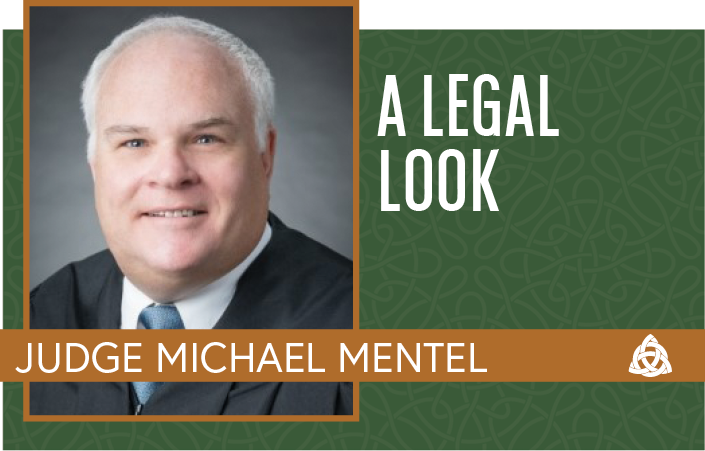
On September 18, 2023, the Conservative Tories in Parliament enacted the Northern Ireland Troubles (Legacy and Reconciliation) Act 2023, commonly referred to as the “Legacy Act.” It subsequently received Royal Assent and became law. The Legacy Act effectively “legalized” the violation of the fair, impartial, and reasonable treatment of victims and their families by shielding the accused from judgment, denying victims access to the courts, and barring any other related form of judicial inquiry.
The Legacy Act
Initially, the Legacy Bill, called the Northern Ireland Troubles (Legacy and Reconciliation) Bill 2022, was introduced in the House of Commons on May 17, 2022, proposing to end all civil and criminal legal proceedings filed against British soldiers, police, and paramilitary organization members attributed to their actions during the Troubles. Inquests launched into the unlawful actions committed by soldiers, police, or paramilitary members during the Troubles, excluding those cases nearing a conclusion, would terminate. Subsequently, in 2023, the Legacy Bill was enacted by Parliament and became the Legacy Act.
The Legacy Act established the Independent Commission for Information Recovery and Reconciliation, the “ICRIR.” It is charged with reviewing unlawful deaths occurring during the Troubles and publishing their findings in individual reports.
The Legacy Acy provides “conditional immunity” from prosecution for persons committing unlawful offenses during the Troubles on the condition that they provide the ICRIR with incriminating information about their offense. Thus, giving perpetrators amnesty for their crimes while barring any criminal or civil legal recourse in the courts of law for the victims or families.
To illustrate the injustice of the Legacy Act, assume that forty years ago a person was severely beaten or murdered in what was an unlawful action by a soldier or an RUC officer. Decades later, evidence is gathered by the ICRIR to establish who the perpetrator was, and if they acted under government authority. The perpetrator learns about the investigation into his unlawful act and that he can receive “conditional immunity” from the ICRIR.
He then approaches the ICRIR declaring, “I did it.” The perpetrator will not, however, be prosecuted for their crime although he admitted to it.
Instead, the information will appear in a report establishing that the perpetrator committed the crime and was acting under government authority. Prosecutors cannot bring charges even if the evidence was obtained outside of the commission’s investigation.
Victims and families are then barred from filing civil lawsuits against the perpetrator or the government because he was granted conditional immunity for implicating himself in his unlawful act. In the end, the perpetrator escapes prosecution, the victim or their family are handed a report, and access to justice is denied.
Condemnation of the Legacy Act is Broad
Condemnation of the Legacy Act is far-reaching. From its inception it was denounced. In a rare occurrence, four political parties in the north that generally stand in opposition to each other, DUP, SDLP, Alliance, and Sinn Féin, all objected to its enactment.
They continue to oppose the Legacy Act and call for its repeal. Then Taoiseach (tēSHǝk) of the Republic, Leo Varadkar, also objected to the Legacy Bill and its subsequent enactment.
On January 17, 2024, the Republic filed an “inter-state” legal action against the UK under the European Convention on Human Rights (the “ECHR”). The Republic alleged the UK violated Article 2 (right to life), Article 3 (prohibition of torture and inhumane treatment), Article 6, (right to a fair trial), and Article 13 (the right to an effective remedy at law.). The case is still pending before the ECHR.
In a separate action filed in the north, The High Court of Northern Ireland, Belfast, found in that action that several provisions of the Legacy Act violated the ECHR. The Secretary of State for Northern Ireland appealed the case, and the appeal is still pending.
The ICRIR is Neither Impartial nor Accountable
While the UK and the Secretary of State for Northern Ireland, Hilary Benn, continue to ponder revisions to the Legacy Act, the ICRIR is still operating. The present Chief Commissioner of the ICRIR is former Lord Chief Justice Sir Declan Morgan.
The Commissioner has received criticism from victims and their families for the extremely slow pace of cases before the ICRIR. Chief Commissioner Morgan simultaneously serves as a supplementary member of the Supreme Court of the UK, creating the possibility that a conflict may arise.
The Commissioner for Investigations for the ICRIR is Peter Sheridan, a former PSNI Chief Constable and a former member of the RUC. Mr. Sheridan is also a former head of the PSNI’s Crime Operations Department, which housed the C3 intelligence unit and was referred to as the “Special Branch.”
Presently, twenty-six former British soldiers and RUC officers are employed by the ICRIR. They very body charged investigating criminal and unlawful actions carried out by members of the military and police organizations they were previously enlisted to serve.
Recently, the Chief Commissioner of the Northern Ireland Human Rights Commission, Ms. Alyson Kilpatrick, noted her trepidations over the governance of the ICRIR and its investigative staff. Ms. Kilpatrick opined that Chief Commissioner Morgan’s serving as a member of the Supreme Court and as the ICRIR Chief commissioner does raise the possibility of conflicts of interest while serving in dual roles.
Ms. Kilpatrick criticized the role of ICRIR lead investigator Mr. Sheridan. She observed that Mr. Sheridan cannot serve as an independent investigator given his prior PNSI and RUC service. Ms. Kilpatrick said that any level of independence as an investigator for the ICRIR is “untenable.”
Days after Ms. Kilpatrick made her remarks, the former Police Ombudsman for Northern Ireland, Baroness Nuala Patricia O’Loan, expressed criticism of the ICRIR. Baroness O’Loan stated in unequivocal terms that the ICRIR is unable to “ensure proper, impartial investigations and accountability.” As to Mr. Sheridan’s role as lead investigator, the Baroness stated that, “the ICRIR, as it’s currently constructed, because the investigations are led by a former RUC/PSNI officer, is not compatible with what is required in Northern Ireland today to ensure proper, impartial investigations and accountability,”
Repeal Must Occur Now
The foundation of any country’s justice system is justice itself. Justice requires that individuals receive fair, impartial, and reasonable treatment in accordance with the law. The law, then, must provide assurances to individuals that when allegations of harm are made, the accuser and the accused receive a morally right result as warranted by their actions.
Accordingly, when a law such as the Legacy Act vitiates the fair, impartial, and reasonable treatment of victims by shielding the accused from judgment and denies victims access to the courts, it becomes an injustice. To achieve justice in the north for the families and victims of unlawful acts committed by British soldiers and the RUC, repeal of the Legacy Act must occur now.






